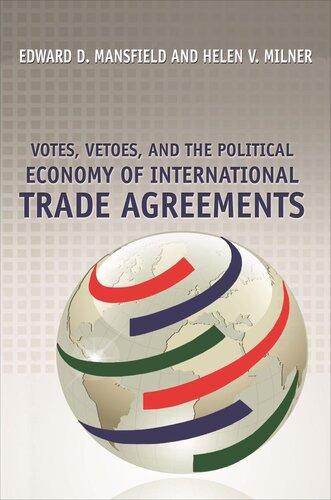

Most ebook files are in PDF format, so you can easily read them using various software such as Foxit Reader or directly on the Google Chrome browser.
Some ebook files are released by publishers in other formats such as .awz, .mobi, .epub, .fb2, etc. You may need to install specific software to read these formats on mobile/PC, such as Calibre.
Please read the tutorial at this link: https://ebookbell.com/faq
We offer FREE conversion to the popular formats you request; however, this may take some time. Therefore, right after payment, please email us, and we will try to provide the service as quickly as possible.
For some exceptional file formats or broken links (if any), please refrain from opening any disputes. Instead, email us first, and we will try to assist within a maximum of 6 hours.
EbookBell Team

4.1
30 reviewsPreferential trading arrangements (PTAs) play an increasingly prominent role in the global political economy, two notable examples being the European Union and the North American Free Trade Agreement. These agreements foster economic integration among member states by enhancing their access to one another's markets. Yet despite the importance of PTAs to international trade and world politics, until now little attention has been focused on why governments choose to join them and how governments design them. This book offers valuable new insights into the political economy of PTA formation. Many economists have argued that the roots of these agreements lie in the promise they hold for improving the welfare of member states. Others have posited that trade agreements are a response to global political conditions. Edward Mansfield and Helen Milner argue that domestic politics provide a crucial impetus to the decision by governments to enter trade pacts. Drawing on this argument, they explain why democracies are more likely to enter PTAs than nondemocratic regimes, and why as the number of veto players--interest groups with the power to block policy change--increases in a prospective member state, the likelihood of the state entering a trade agreement is reduced. The book provides a novel view of the political foundations of trade agreements.